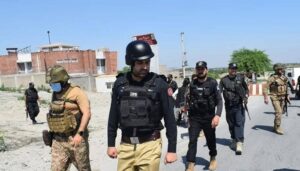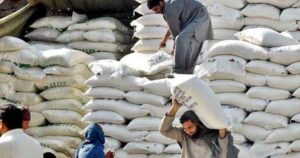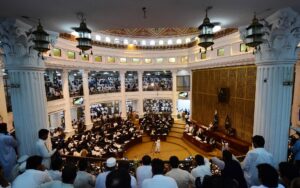PESHAWAR – A deadly assault on the Frontier Constabulary (FC) lines in Bannu has once again raised alarm over Pakistan’s fragile security situation.
Militants rammed an explosives-laden vehicle into the FC compound before storming the premises with gunfire. The attack killed six soldiers, including two majors, and wounded 19 others. Several civilians also sustained injuries. The Hafiz Gul Bahadur group claimed responsibility.
US weapons in Afghan hands
Pakistani officials and analysts say the attackers used modern weapons left behind by US forces during their chaotic withdrawal from Afghanistan. Some analysts argue that Washington abandoned these weapons deliberately to create long-term instability in the region.
Authorities in Islamabad accuse the Afghan Taliban administration of failing to stop the flow of these arms to groups such as the hardline militant group, Tehrik-e-Taliban Pakistan (TTP). Deputy Prime Minister and Foreign Minister Ishaq Dar recently demanded that Kabul either act against the militants itself or hand them over to Islamabad. Observers, however, doubt that the Afghan government will take such steps.
Pakistan’s intelligence agencies maintain that TTP and Baloch separatist groups receive support from across the border. Officials allege that India’s intelligence agency, RAW, provides funds and weapons to fuel militancy inside Pakistan. They argue that this backing has contributed to the recent spike in violence in Khyber Pakhtunkhwa and Balochistan.
Security personnel responded swiftly to the Bannu assault. FC soldiers fought the attackers and prevented them from capturing the compound. Police officials said a search operation continues in the area to track down possible facilitators. The Inspector General noted that the militants had planned a much larger attack but security forces foiled it.
Intelligence under scrutiny
The incident has renewed criticism of Pakistan’s intelligence services. Critics argue that prior detection could have averted the attack and reduced casualties. Defence analysts, however, point out that despite limited resources and conventional weaponry, security forces managed to contain a major assault and prevent greater damage.
The Bannu attack underscores the persistent threat of militancy in Pakistan’s northwest. The availability of US-made weapons in militant hands, Kabul’s unwillingness to act against them, and alleged external funding continue to complicate Islamabad’s security landscape. The question now is whether Pakistan’s current strategy can counter these evolving threats or whether the state must rethink its security and diplomatic approach.












